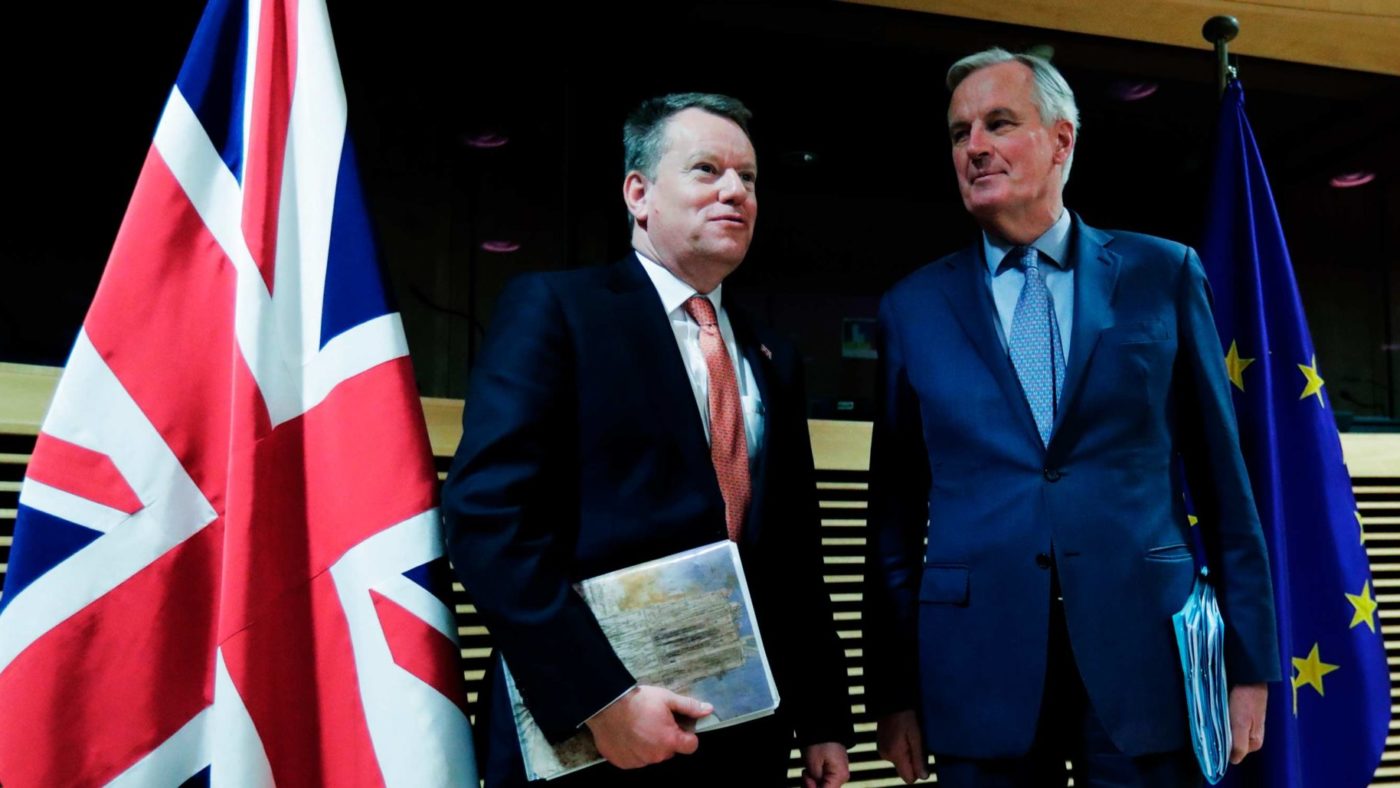Politics trumps economics – or so anyone observing the UK’s tortuous Brexit path would likely conclude.
It is clear from negotiations so far that protecting trade is not particularly high up on the agenda on either side – sovereignty and control are the overriding focus for both Britain and the EU, albeit in different ways. That in itself need not consign our collective economic integration to the dustbin, but it does mean getting real about what will help or hinder our recovery from the current crisis. Bringing in wholesale compliance change – from customs to immigration – before business is remotely ready will only compound an already extremely difficult situation.
Unlike the EU, the UK probably has a more balanced set of trade-offs to consider on Brexit. At best, Britain’s departure might allow the bloc to speed up its political integration and consolidation efforts. On this side, the UK can make a clear case that it is “doing things differently”, even if that does mean some trade disruption – though the argument is still raging about what the best balance is between those two considerations.
The coronavirus crisis only distils those arguments more clearly, so long as those advocating for change make clear where the EU is holding the UK’s response back – where we would do things differently to achieve a better outcome. But the transition to wholesale change at the end of these negotiations could significantly erode any of these benefits if it makes it harder for businesses to bounce back. The means to an end could still deliver the wrong end altogether if we aren’t careful.
One can understand the strategic approach behind presenting this FTA process with the EU as a “standard” one, with no special treatment from other trading partners, even if our intertwined trade and economies speaks to the preferential arrangements we have had in place for decades.
Of course, there is little that is normal about this process. For one, hard deadlines are not usually a feature of trade negotiations, even when ambition and speed are among the objectives. More importantly, there is rarely such a rupture that looms if the talks break down – there is no comparable status quo to rely on.
Managing our exit and inevitable divergence from the EU is as important as the divergence itself. Even though it has relaxed a significant number of rules so far – from state aid to SPS measures – it is clear that coronavirus has shifted the dynamics on arguments for flexibility, particularly around trade policy, not least as the EU’s own internal market has seen restrictions between some of its own members. Getting the UK’s voice and priorities heard will clearly be a challenge after Brexit, even if the government were more amenable to alignment and institutional arrangements to improve its ability to influence the rules as a third country.
Either way, ushering in sweeping new compliance burdens without giving those affected much time to prepare is very much not the standard approach for trade talks worldwide. FTAs have a built-in adjustment period between the texts being agreed, published and operationalised. And many of the big tariff cuts end up being phased in over years if not decades. Regardless of what anyone might want, with a deadline in mind and no sign of an extension being offered on our side, it’s clear this trade deal is not going to liberalise much – that means change needs to be managed even more carefully.
Should negotiations fail, these new burdens could be exponentially extended for our internal trade between Great Britain and Northern Ireland as well. At a time when the government is rightly doing everything it can to reduce red tape, expecting firms to rapidly adjust to sweeping changes linked to the end of transition – with little information to go on – would be at odds with its best practice approach so far. That also threatens to negate any of the efficiencies made elsewhere with our new areas of policy control.
As for what firms should be preparing for now, there is so little detail available that I wince when presenting the issue to already beleaguered businesses – their reaction so far is largely to push it to one side until there is clarity.
To be clear, this is none of this is about avoiding or delaying Brexit (proper). It’s about doing it in a way that minimises risks and maximises opportunities.
While the clear majority of IoD members have said their priority for new arrangements with the EU is substance over speed, this does not mean they want to stay in a half-way house forever. What is paramount is having sufficient sight of the new deal with enough time to prepare and adjust to it, a request that is the standard far beyond the EU.
The IoD has long put its focus squarely on the need for a real implementation period, to convey the needs of business rather than squabbling over the politics of transition. How that is achieved is less important to firms, but if extension proves the only way to do so, then it should be on the table.
Click here to subscribe to our daily briefing – the best pieces from CapX and across the web.
CapX depends on the generosity of its readers. If you value what we do, please consider making a donation.


